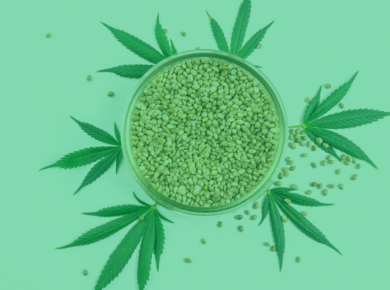A big question people are asking is: What is CBD – and is it legal within the United States?
CBD is the shorthand for cannabidiol, one of 113 cannabinoids found within the plant genus cannabis sativa.
The longer answer is – it is the non-psychoactive component of cannabis and a major breakthrough in the search for an alternative to opiates and therapy within palliative care. In addition, it has garnered proponents within the wellness industry, sports industry, mental health community and major support from those who suffer from chronic illnesses. Its plethora of medicinal benefits as an anti-inflammatory, anti-psychotic and general food supplement is well backed by research and medications are already being developed by big pharma. CBD is also proving to be a major impetus in the legalization of hemp within the United States and has even garnered attention by the United Nation’s WHO. CBD is many, many things, but is it legal?
Is CBD Legal? In short… CBD is legal within the United States as long as it meets the definition of a Hemp product under the Federal 2018 Farm Bill Standards. The only exceptions come State By State where different local governments have passed laws banning Hemp, cannabinoids like Delta 8 THC, or even changing their standards from the 2018 Farm Bill’s standards.
For a list of All 50 States and the Current Hemp Laws Click Here
And how did we get into such a grey area of legality?
Let’s go back to the 1930’s…
The history of legality in regards to CBD is rooted in the history of the plant it is derived from, Cannabis Sativa. Cannabis Sativa includes two forms of cannabis: marijuana and hemp. Both are technically within the genus c. sativa, however only one of them is found to have high quantities of the psychoactive element THC, while both can contain varying amounts of CBD. Marijuana from its earliest days has been touted as the “Devil’s Lettuce”, and hemp unfortunately has experienced similar prejudice.
Going back, after Prohibition, with alcohol now legal, Harry Anslinger the first Federal Bureau of Narcotics Commissioner, needed a new substance to attack. As a result came the 1937 Marihuana Act which deterred farmers from growing hemp by imposing taxes and bureaucratic burdens on farmers.
Later, during WWII, the United States military was under acute pressure to acquire materials for the war. As a result the government promoted a short film they created called Hemp for Victory, urging farmers to produce hemp for aviation lubricant, parachutes and tow lines. With federal aid and government approval thousands of acres of hemp were seeded, and still grow wild today.
However in 1970, during the Nixon era’s War on Drugs, cannabis sativa was labeled as a Schedule 1 drug and deemed, “illegal because they have high abuse potential, no medical use, and severe safety concerns”. Despite having little evidence to support such claims, and recommendations from his own drug commission for removal, the Nixon administration began a crusade intent on demonizing and prohibiting the growing and use of marijuana and hemp plants, seed, and oil that lasted up to the Reagan era. This has had a drastic impact on the number of young people incarcerated, markedly impacting the hippie community at the time and people of color to this day. Within less than two decades,
“The number of people behind bars for nonviolent drug law offenses increased from 50,000 in 1980 to over 400,000 by 1997.”
To This day, within states without medical or recreational cannabis, local law enforcement still follows federal guidelines and considers possession of any cannabinoid a crime.
2014 Farm Bill…
In 2014, President Obama signed in the Farm Bill (aka the Agricultural Act), which authorized states’ Department of Agriculture and Universities to grow and conduct research on hemp within a regulated pilot program, if located within a state that had legalized hemp cultivation.
This represented a huge shift within the political landscape with respect to cannabis because it officially differentiated Industrial Hemp from Marijuana setting a precedent for other legislatures to follow. On a federal level, select states now had approval to grow hemp and develop uses for the stalk, fibers, seed and cannabinoids within them, presuming the hemp grown was deemed legal. The determining factor was within it’s THC content; a plant must have less than 3% THC in order to be considered legal.
Following the signing of the 2014 Farm Bill, there have been an increasing number of states that have written and passed state laws in relation to hemp and/or cannabidiol. As of 2017, there were 33 states with laws specifically regulating hemp, with 14 of the 33 legally producing hemp seeds, and 24 states that have defined industrial hemp as distinct from other strains of cannabis, effectively removing obstructions to production and sale. Currently there are 17 states that have passed legislation at the state level, either legalizing the use and sale of CBD, and/or providing protections to those who are in possession/use of the cannabinoid.
The 2018 Farm Bill, and is CBD Legal in 2022?
Yes, CBD is legal in most areas of the United States! In general, the 2018 Farm Bill made hemp derived CBD and cannabinoid products legal to buy and consume in the United States as long as they aren’t marketed as medicine or found in food or beverages. The 2018 Farm bill also opened up hemp production to non-research purposes and allowed sales to consumers. The Bill’s toughest restriction is to limit Delta 9 THC below .3%, but in the past few years farms have become masters of harvesting the hemp before it has time to develop the outlawed Delta 9 Cannabinoid and now compliant products are easy to find.
There are exceptions to the law! For example, states like Idaho and Nebraska have not fully adopted the Farm Bill, and there are still places in the United States where CBD is not legal to purchase! For a list of All 50 States and the Current Hemp Laws Click Here
Questions? Write us at info@kush.com



